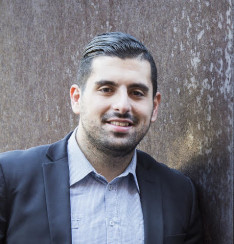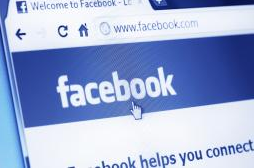Can brands get anything out of a Facebook ‘Like’?
Brands should be using Facebook as a paid channel and get ready to ditch organic reach, and here’s why, says George Pappas.
The great thing about working in social media is that there’s never a dull moment. We are constantly facing algorithmic change, new platform developments, over-commercialisation – amongst other things. But what truly is the talk of the town is how differently we must now look at Facebook for brands.
Traditionally (yes, I’m using the term ‘traditionally’), a brand’s Facebook strategy was rather simple: you’d build the audience, generally through Page Like ads and a few competitions; deploy a creative content strategy, and reach a good portion of the audience you had worked hard to build.
In contrast, today we are receiving little to no organic reach and instead are amplifying content through Facebook’s paid channel. Why is this the case? Well, Facebook got busy. It got real busy. Each time we login, Facebook has upwards of 1,500 content pieces ready to serve us and from that, it must choose around 150.
This includes our friends’ content, sponsored content, events, news and more. So, is it any surprise that organic coverage for brands is quite low on the pecking order? No. I’ll even go as far as to say that Instagram and other feed-based platforms will face a similar fate.


And I thought all these cool social media kidz thought paid media was the devil. It’s all about creating organic content that people love and choose to engage with and bla bla bla. How did that work out for ya?
Hi George. Why the focus on Facebook? The cool kids have moved on. Facebook is not a panacea for social presence. At best it gives you access to an ageing demographic that has learned to curate news feeds. Who wants to be on the same social network as their parents? It’s easier to find Pikachu than someone under 25 on Facebook.
Innovative brands aren’t using Facebook as a paid channel. The first step for innovative brands is to understand where their audience is. Innovative brands understand that like you, the audience evolves. They mature. They watch different shows, listen to different music and engage on different social networks. Innovative brands understand that they need to be on the social networks where their audience is going, not where they’ve been. Perhaps Facebook is bested suited to legacy brands growing old along with their audience.
Companies like Piptook are in the enviable position of being able to help brands see how much they don’t know about their audience. Shedding light where there was none can quickly change the direction of a digital strategy. Better intelligence allows brands to create the right content for the right audience on the right channel at the right time.
The death of organic reach is greatly exaggerated…but you need the right tools to play.
Are you kidding? Facebook is Australia’s largest social media channel. You can’t ignore it.
Why your obsession with the impoverished youth? Spending power is with GenX, boomers and older – so if the FB profile is aging then great – all the more reason for brands to be there.
Malfunction in mumbrella cms seems to be regurgitating rejected articles from 2010
Yep. Not exactly cutting edge. Facebook is a media network far more than a social network. This is not new news.
Really? Want to show me the stats that show organic reach for brands in 2010 v now? You and Mr Corbett may both be surprised that the landscape was completely different. Oh, and Facebook’s paid channels in 2010 weren’t near as diverse as they are now.
Hey Patrick, Facebook is the mass market outlet here in Australia with 16 million active monthly users. It’s an amazing beast that, despite rumours & forecasts to the contrary, has not disappeared or become irrelevant. You say the ‘cool kids’ have left – I suggest otherwise. In fact, the cool kids are now quite active on Facebook consuming content from the likes of UniLad (who, by the way, is the biggest video publisher on Facebook) and others.
Oh, and regarding innovative use of Facebook. You’re right. Innovative brands understand where their audiences are. The best Facebook strategy deploys paid content campaigns targeted to a cluster of micro audiences built within Facebook. Finding an audience isn’t just about picking the right platform… but finding your audience(s) on these platforms.
Great article George!
@Patrick – “The cool kids have moved on” Surely you don’t mean the audience – as FB has the largest audiences across any demo, greatest reach and best targeting for brands right now compared to other social media platforms. And if by ‘cool kids’ you mean social media proponents then you are barking up the wrong tree. Brands aren’t looking to be ‘innovative’ when it comes to picking a media channel, they are looking to create a measurable outcome. To suggest that FB can’t reach younger audiences is laughable. I could go on, but by the time you started spruiking Piptook you’d already lost us…
George, if “Facebook is the mass market outlet here in Australia with 16 million active monthly users”, then what is TV that reaches 15-17 million every day (viz. last week’s data)?
Hey John – I was labeling it the mass market social platform. Wasn’t speaking relative to any channel outside of social (inc TV).
“.. social platforms that become popular for brands will ultimately become paid channels for brands.”
Nicely stated.
Hey this is coming from another group, but why would paid reach damage organic reach?
“It’s not about “worth” — it’s about damaging your organic reach beyond repair!”
Solid article!